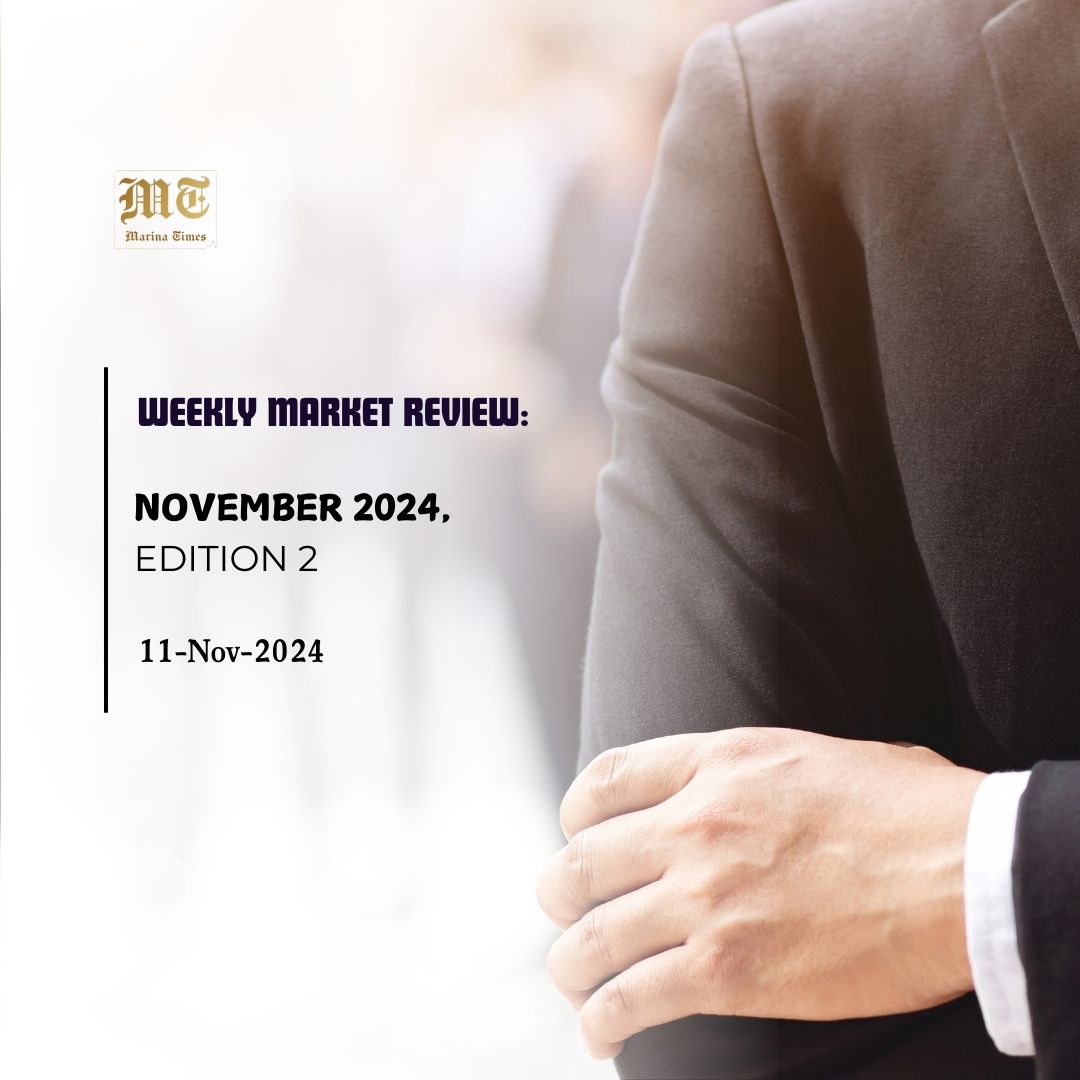

Fitch Ratings has issued a rather unsettling forecast for Nigeria’s banking sector, predicting an uptick in non-performing loans (NPLs) for 2024, as a consequence of the country’s aggressive high interest rates and inflation that seems to have an endless appetite. In its latest credit rating update, Fitch confirmed Nigeria’s Long-Term Foreign-Currency Issuer Default Rating (IDR) at ‘B-’ with a Positive Outlook. But here’s the catch: Fitch also warned that as inflation marches on and borrowing costs rise, the pressure on the banks to manage loan defaults will grow—leading to an increase in NPLs.
In other news, Nigeria’s fiscal deficit has ballooned to a truly eye-watering ₦4.53 trillion in the second quarter of 2024, up from ₦3.88 trillion in Q1, according to the Central Bank’s economic report. The increase is a stark reminder that the government needs to ramp up revenue collection.
Following a period of relative ease in liquidity, the system faced a significant deficit of over ₦2 trillion on Wednesday, a day after the OMO auction took place. At the NAFEM Window, the exchange rate fluctuated between a high of $/₦1,700.00 on Thursday and a low of $/₦1,591.60 on Monday. The market closed the week at $/₦1678.87 on Friday.
In recent developments regarding the OMO auction, a notable trend has emerged reflecting strong investor interest, particularly from offshore investors. The latest OMO auction held on Tuesday showcased robust demand with total bids reaching nearly ₦1.5 trillion, significantly surpassing the ₦300 billion offered by the CBN. This high level of demand indicates a bid-to-offer ratio of approximately 483%.
Given that liquidity prior to the auction was only a surplus of a little above ₦230 billion, analysts suggest that the surge in bids is likely driven by inflows from offshore investors, who are attracted by the high returns available in the Nigerian market. The recent OMO auctions have consistently closed around 24%, with the latest auction reflecting a modest decline of just 2 basis points. This high yield is believed to be attractive to investors, particularly those looking for short-term instruments, making Nigerian securities appealing amidst global economic uncertainties.
The CBN’s strategy to maintain elevated interest rates has effectively positioned these short-term instruments as lucrative investment opportunities for foreign participants seeking better yields compared to their home markets. This shift not only underscores the attractiveness of Nigerian securities, but also reflects broader trends in global investment behaviour amidst fluctuating economic conditions
TENOR | AUCTION DATE | OFFER (₦’B) | BIDS (₦’B) | RANGE OF BIDS (%) | STOP RATES (%) | PREVIOUS STOP RATES (%) | TOTAL SALE (₦’B) |
95-DAY | 05-11-2024 | 25.00 | NIL | NIL | NIL | NIL | NIL |
179-DAY | 05-11-2024 | 25.00 | NIL | NIL | NIL | NIL | NIL |
361-DAY | 05-11-2024 | 250.00 | 1,447.93 | 23.9800 – 24.2800 | 24.2800 | 24.3000 | 1,447.93 |
At last Wednesday’s NTBs auction, the Central Bank of Nigeria (CBN) sold over ₦620 billion worth of Treasury Bills. This marks a significant increase of more than ₦250 billion compared to the previous auction, showing the fiscal alignment with monetary policy efforts to keep short term yields attractive.
However, given the system’s high deficit, the standout development in this auction was the 364-day tenor, which closed at an all-time high stop rate of 23%, a striking increase that signals heightened borrowing costs.
In contrast, the 91-day tenor fell short of the amount on offer by over ₦7 billion, while the 182-day tenor saw a smaller shortfall of about ₦2 billion. On the other hand, the 364-day tenor—as is often the case—recorded a surplus allotment of over ₦120 billion, resulting in an overall surplus of approximately ₦111 billion for the auction.
After maintaining stop rates for the third consecutive auction, the 91-day and 182-day both saw a 100 basis points increase, closing at 18.0000% and 18.5000%, respectively. The 364-day tenor, however, experienced a much more significant rise of 235 basis points, from 20.6500% to 23.0000%.
AUCTION DATE | 06-11-2024 | 06-11-2024 | 06-11-2024 |
ALLOTMENT DATE | 07-11-2024 | 07-11-2024 | 07-11-2024 |
MATURITY DATE | 06-02-2025 | 08-05-2025 | 06-11-2025 |
TENOR | 91-DAY | 182-DAY | 364-DAY |
OFFER (₦) | 20,749,351,000 | 5,439,365,000 | 487,238,703,000 |
SUBSCRIPTION (₦) | 15,996,250,000 | 4,901,858,000 | 649,033,219,000 |
ALLOTMENT (₦) | 13,996,250,000 | 3,401,858,000 | 608,933,219,000 |
STOP RATES (%) | 18.0000 | 18.5000 | 23.0000 |
PREVIOUS STOP RATES (%) | 17.0000 | 17.5000 | 20.6500 |
Despite the banking sector’s relatively low loan-to-asset ratio of 35% by the end of 2023 (which could be considered modest, or even good depending on how you look at it), Fitch expects this ratio to climb in 2024. Inflation wears down the value of repayments and makes it harder for borrowers to keep up. So, don’t be surprised if NPLs start popping up like unwanted party guests.
The report also drew attention to the Central Bank of Nigeria’s (CBN) decision to hike capital requirements for banks, a process expected to be wrapped up by the first quarter of 2026. If that wasn’t enough to keep banks on edge, the Finance Act, which slapped a 70% windfall tax on banks’ foreign exchange gains, will only add to the pressure—especially for the 2023 and Q1 2024 periods.
Consistent with the views of most analysts, Fitch Ratings has signaled its expectation of an additional rate hike at the forthcoming Monetary Policy Committee (MPC) meeting. While the government continues its efforts to rein in inflation, the task appears increasingly difficult.
In response to the inflationary pressures, investors have increasingly sought refuge in longer-term government securities, as highlighted in the CBN’s Q2 2024 report. Faced with escalating inflation, many investors appear to be opting to lock in returns over extended periods, hoping that these will outpace the rising cost of living.
This shift in investor sentiment aligns with the CBN’s broader strategy of utilising high interest rates to combat inflation. By offering higher yields on long-term securities, the CBN aims to attract investment into more stable and predictable instruments, as opposed to the short-term volatility generated by inflationary fluctuations.
Inflation, meanwhile, remains a pressing concern. In Q2 2024, the inflation rate surged to 34.19%, up from 33.20% in the previous quarter, marking a continued upward trajectory. Given this ongoing price escalation, it is clear that inflation is not merely increasing but accelerating at an alarming pace.
In light of the current economic outlook, it is unsurprising that demand for government securities has risen. Investors, seeking more reliable returns amidst a backdrop of rising inflation, appear increasingly inclined to allocate funds into instruments that offer stability and predictability in an otherwise volatile financial environment.
As Nigeria contends with high interest rates, a growing fiscal deficit, and inflation that’s proving hard to tame, the outlook for the economy—particularly the banking sector—remains uncertain. Fitch’s warning of rising non-performing loans, coupled with the government’s escalating reliance on deficit financing, suggests a challenging economic environment with limited prospects for immediate stability.
At the core of this uncertainty, investors are seeking refuge in long-term government securities—offering some degree of stability, though not necessarily an ideal solution.
Ultimately, whether Nigeria can navigate its way out of this economic turmoil will depend on how effectively the monetary and fiscal authorities manage the complex interplay of foreign exchange, inflation, interest rates, and debt, without exacerbating the situation further.
Short-term interest rates are likely to stay elevated in line with the government’s clear efforts to make the Naira an attractive currency in global terms by ensuring real returns. Although this approach may not be popular in analytical circles, it is sensible to predict based on the established policy agenda. Due to the extremely high cost of adopting this approach (with specific reference to fiscal policy), we do not foresee further elevation beyond the short end of the curve. In fact, it is expected that fiscal authorities will embrace less costly funding options for mid to long-term needs.
Cryptocurrencies and equities seem to have ballooned in the last couple of days following the emergence of President-elect Donald Trump, and while this is very positive news, we are of the opinion that prices may have discounted the rest of the Biden-Harris dispensation, and as such, we expect some repricing to factor the gap period between now and Trump’s inauguration in January, however short.
Oil prices in the same breath have been priced to reflect Trump’s resumption, but we foresee more chaos in the Middle East before he takes over. To this end, our outlook for oil prices is bullish as escalations between Israel and Iran may grow more intense and direct.